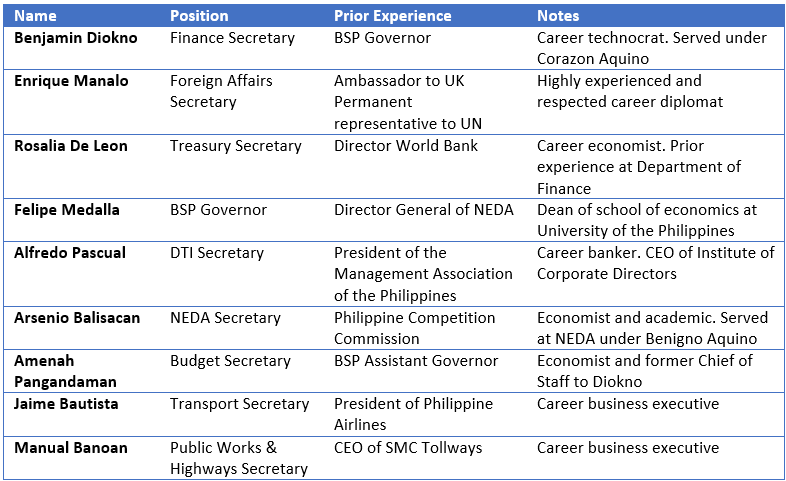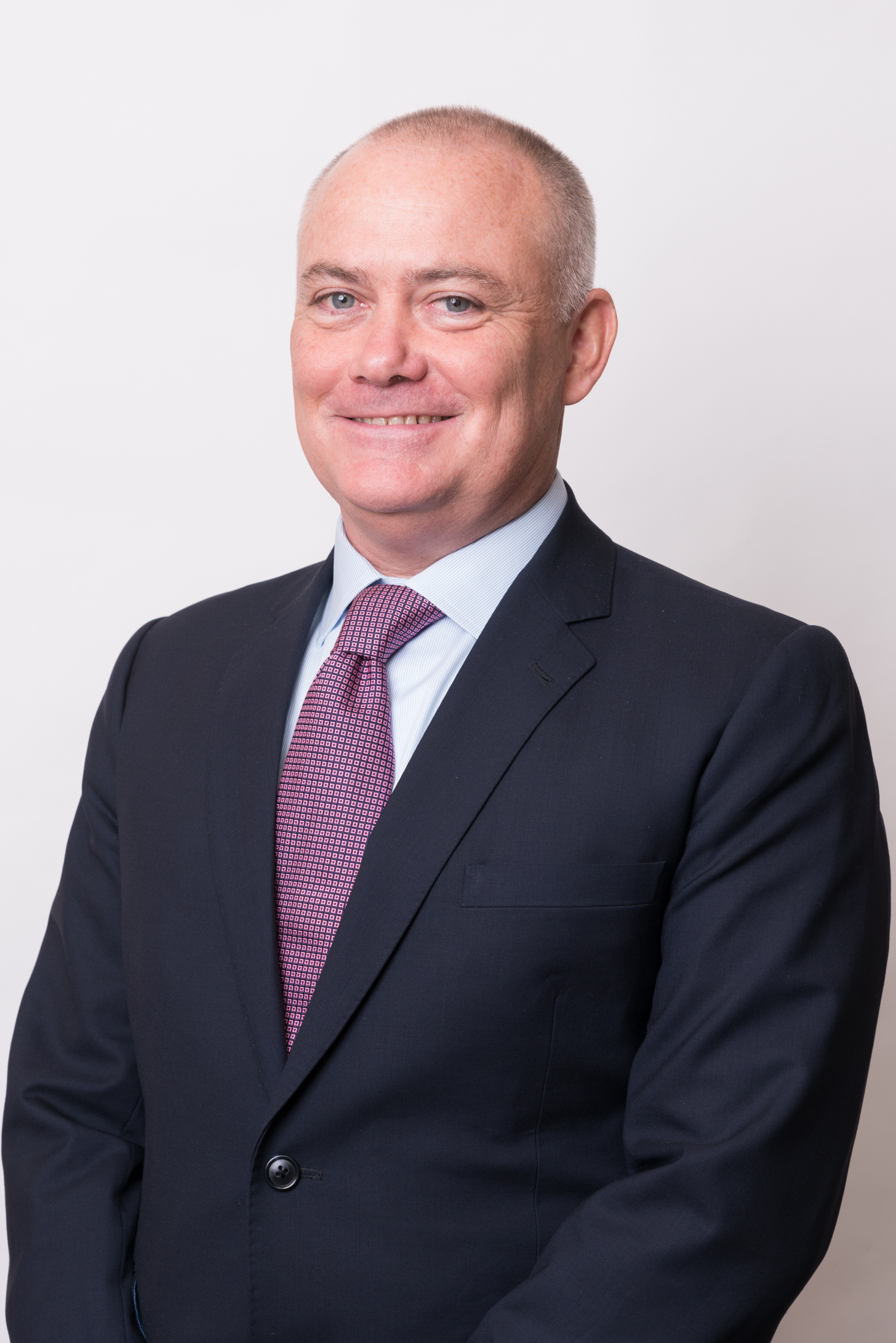Philippines: Bongbong starts with a bang
by Christopher Leahy, ACGA
It is early days into the administration of new President “Bongbong” Marcos Jr., but his first moves show some encouraging pragmatism and no obvious cronyism, writes Chris Leahy.
Ferdinand Marcos Jr., better known by his puzzling sobriquet, Bongbong, was sworn into office on 30 June 2022 after a landslide win in May’s presidential election. With Sara Duterte, daughter of outgoing populist President Rodrigo Duterte as his Vice-Presidential running mate, Marcos’ victory always looked like a shoo-in. The business elite and intelligentsia who railed against the return of the country’s most infamous first family to the highest public office during a lively and at time controversial election, have thus far, found little to complain about with the new administration.
Marcos’ long career as a senator and provincial governor earned him a reputation of being short on intellect and long on indolence. Yet insiders at Malacañang, the Presidential palace in Manila, speak of an energetic, focussed and well-briefed leader who has quickly assembled an administration of capable technocrats in key posts, to the relief of local businesses, international investors and analysts alike:

Notable appointments include Benjamin Diokno as Finance Secretary. The former Governor of central bank Bangko Sentral ng Pilipinas (BSP), Diokno is a career economist and worked closely with outgoing Finance Secretary, Carlos Dominguez. Dominguez urged the incoming administration to adopt a consolidation programme to quickly reduce government debt that increased by US$59 billion during the Covid-19 pandemic and currently stands at some 64% of GDP. Diokno has wasted no time in doing just that, introducing a five-year “Medium Term Fiscal Framework” of debt consolidation which has already passed the House of Representatives and is now with the Senate. Meanwhile, Diokno has been replaced as BSP Governor by economics professor Felipe Medalla.
Also of note is the appointment as Treasury Secretary of Rosalina De Leon, formerly an executive director with the World Bank, and Arsenio Balisacan as head of the influential government economic planning body, the National Economic Development Agency (NEDA). A career economist and academic, Balisacan has served as head of the Philippine Competition Commission. Notably, both Diokno and Balisacan served in previous administrations of the Aquino family, regarded as political enemies of the Marcoses.
Some optimism on the policy front
Bongbong’s first State of the Nation Address (SONA) on 25 July 2022 was also generally well received. Marcos spoke of the need to continue the infrastructure momentum from Duterte’s “Build Build Build” programme that saw PHP8 trillion (US$1.5 billion) of new highways, bridges, and ports approved between 2017 and 2022. Marcos said he also intends to increase spending on much-needed digital infrastructure. Also welcomed was his intention to focus efforts on agricultural reform to help lower income families. Marcos named himself Agricultural Secretary with Sara Duterte named as Education Secretary. Yet just how Marcos intends to reform Philippine agriculture without material land reform, a practical impossibility to many analysts, remains to be seen. And his stated intention to address climate change—and explicitly, plastic in the country’s oceans—is as admirable as it is vague.
Nervous western and regional democracies were encouraged by Marcos’ SONA statement that he will be much more hawkish towards China than his predecessor. With continued controversy and security concerns around the Duterte administration’s award of a third telco licence to a joint venture involving China Telecom, China’s increasing belligerence in the South China Sea, and Marcos’ recent rejection of China bilateral development loans over terms, will be seen as encouraging signs that the Philippines may be returning to the western sphere of influence.
Like father, like son?
Marcos has just embarked on a single six-year term so there is much that can go awry as his term plays out. Optimists credit his new-found professionalism with a desire to rehabilitate the family name, tarnished by his father’s extraordinary plunder of the country’s wealth and persecution of his political enemies.
Yet there are also indications of familiar familial behavior. The younger Marcos displays the same sense of arrogance towards his foes as his father and has treated victims of his father’s brutal regime with indifference. His presidential campaign entailed significant and successful social media misinformation to expunge the historical reality behind Marcos Sr.’s rule. Already Marcos Jr. has named his son, Ferdinand Marcos III, better known as Sandro, a first-term Representative for the Marcos family’s political fortress of Ilocos Norte, as House Senior Deputy Leader. Sandro is just 28 years old. It is difficult to escape the conclusion that Sandro is already being groomed for a tilt at the Presidency in due course, extending the shadow the Marcos family casts over the country.
What price patronage?
Looming over Bongbong is the architect of the successful political alliance between the Marcos and Duterte clans. Former President Gloria Macapagal Arroyo and husband, Miguel, brokered that deal and a material payback for the Arroyos is inevitable. Corruption will remain an inevitable fact of political, business and everyday life for generations to come unless political leadership emerges to tackle it in a systemic fashion. There is no sign of such political will emerging.
Yet despite the challenges of corruption, dynastic politics and the Pandemic, the longer-term economic outlook for the Philippines looks good. The economy grew 7.4% in the second quarter of 2022, its fifth consecutive quarter of growth after rebounding from a pandemic-induced recession. Like many countries, that has led to inflation issues (6.4% in July) and a weaker peso (down 10.6% against the US dollar in the last 12 months). But if the Philippines can manage its debt load and reduce inflation, there is little to prevent the economy growing, buoyed by positive demographics, burgeoning remittances from overseas Filipinos, increased government spending on infrastructure and a strong consumer domestic economy.
For more information, please contact chris@acga-asia.org.
Download File Disclaimer
In addition to the ACGA website disclaimer access to the "Members' Area" of the ACGA website is subject to the general disclaimer and content attribution statements below.
General Disclaimer
By logging into our Members' Area you acknowledge that all materials displayed on the site or made available for download are for the exclusive use of ACGA members. You may not share the content with parties outside of your organisation.
Content Attribution
The copyright ownership of all material on our website belongs to ACGA. Should you wish to use any materials in the course of your corporate research, including directly quoting or paraphrasing sections, reprinting, reproducing or the like, we request that you give proper acknowledgement to ACGA and share a copy with us. Please email irina@acga-asia.org.


